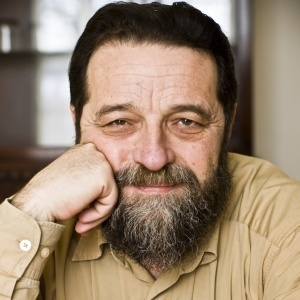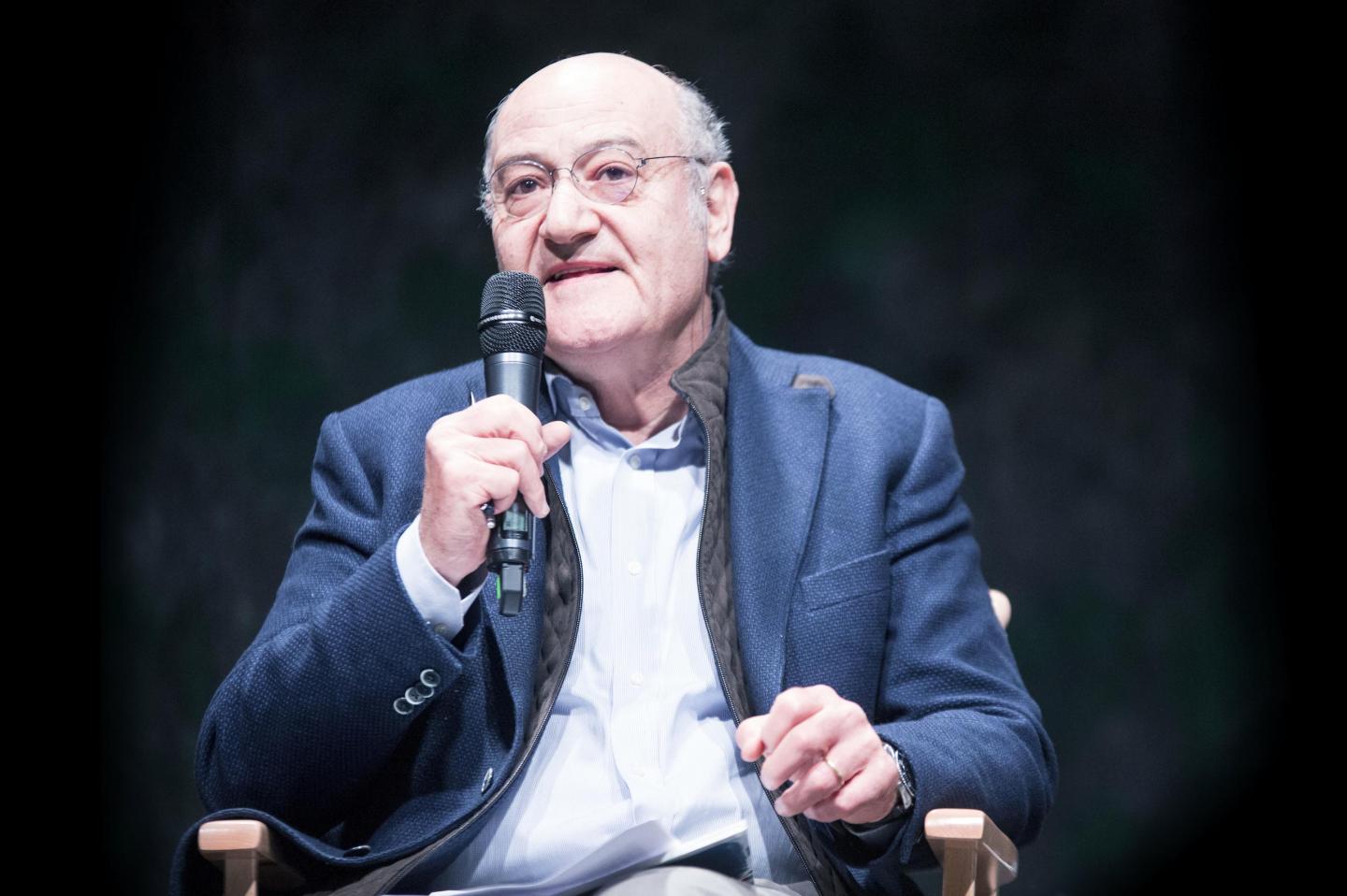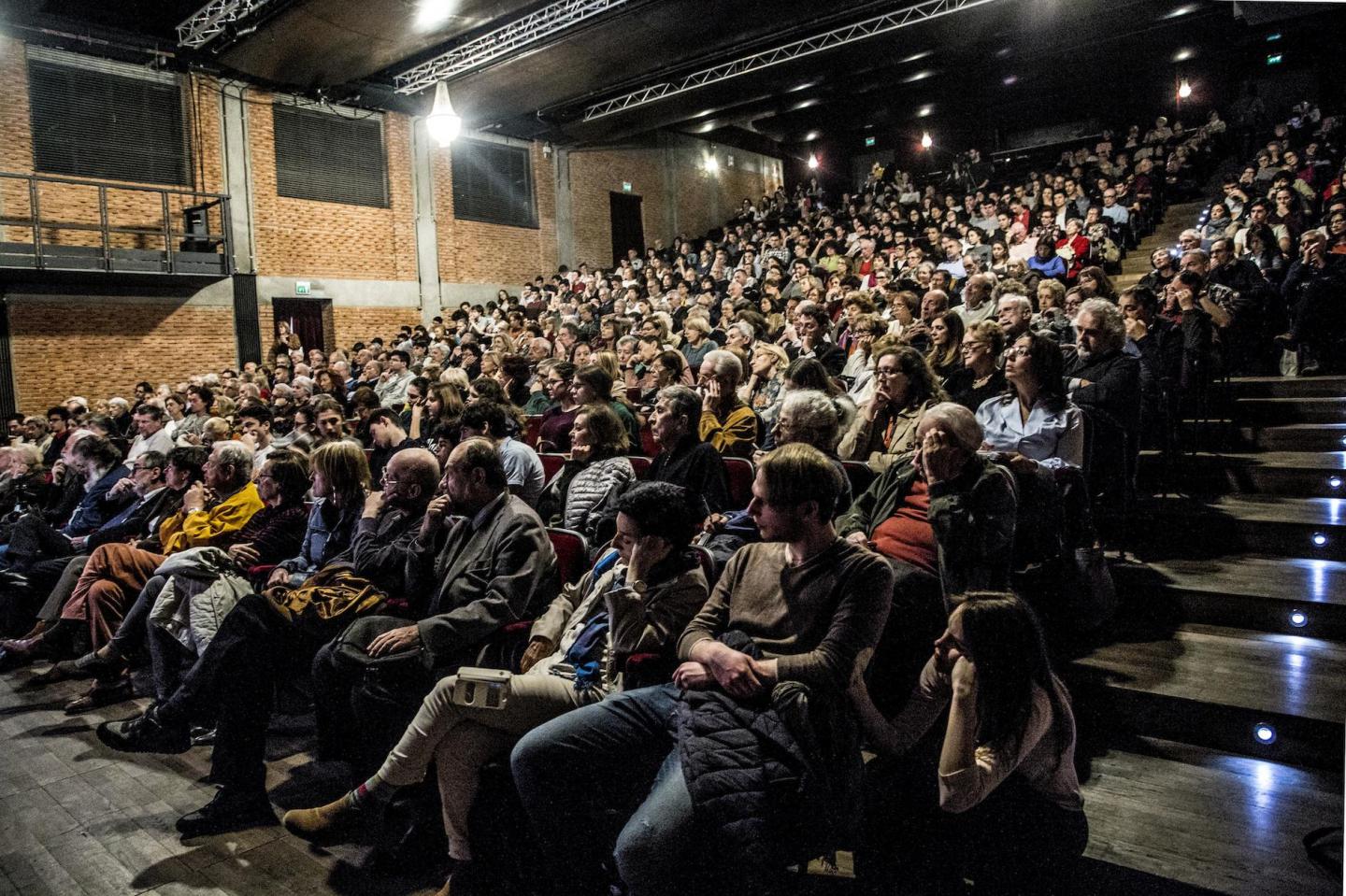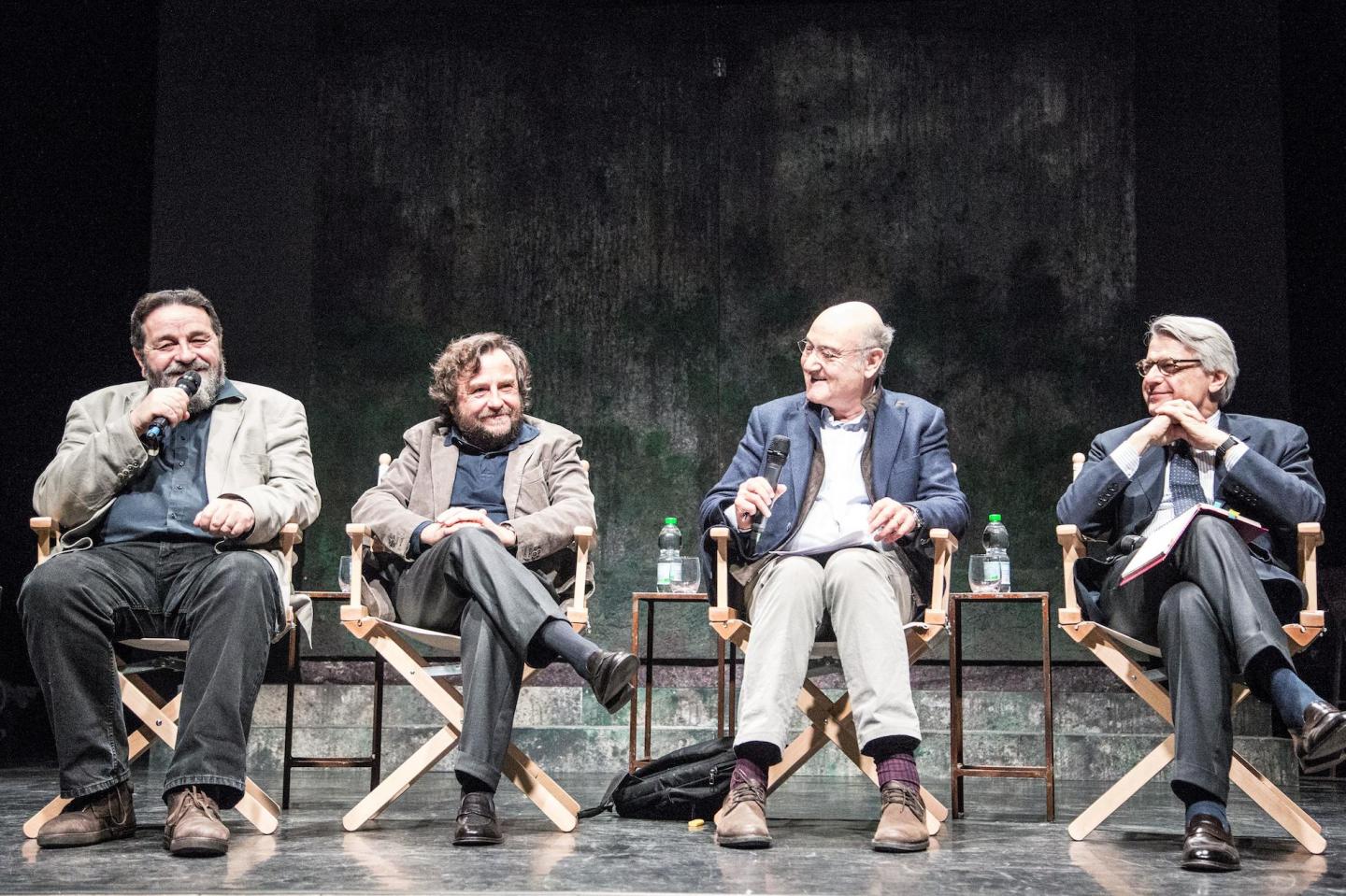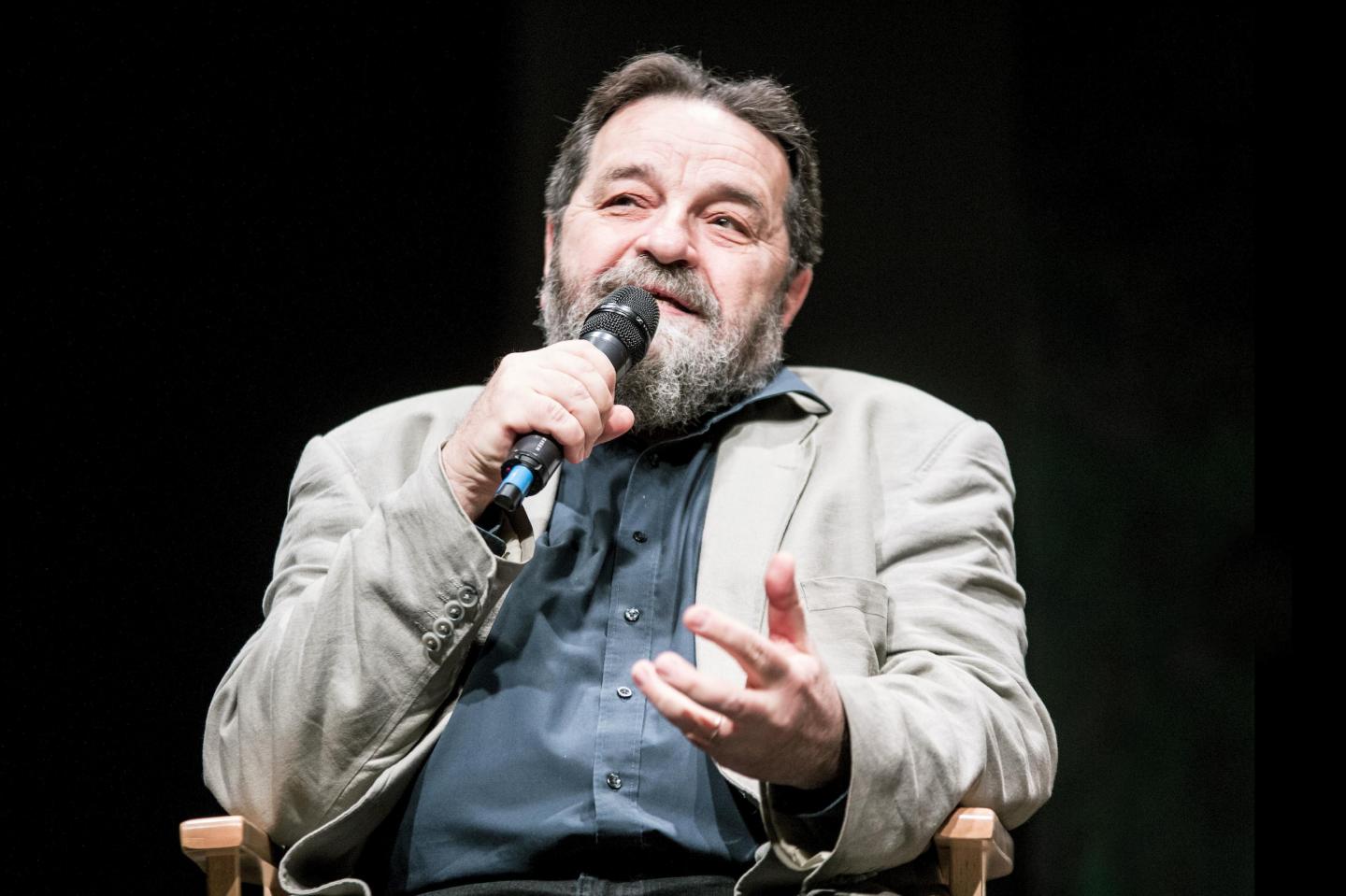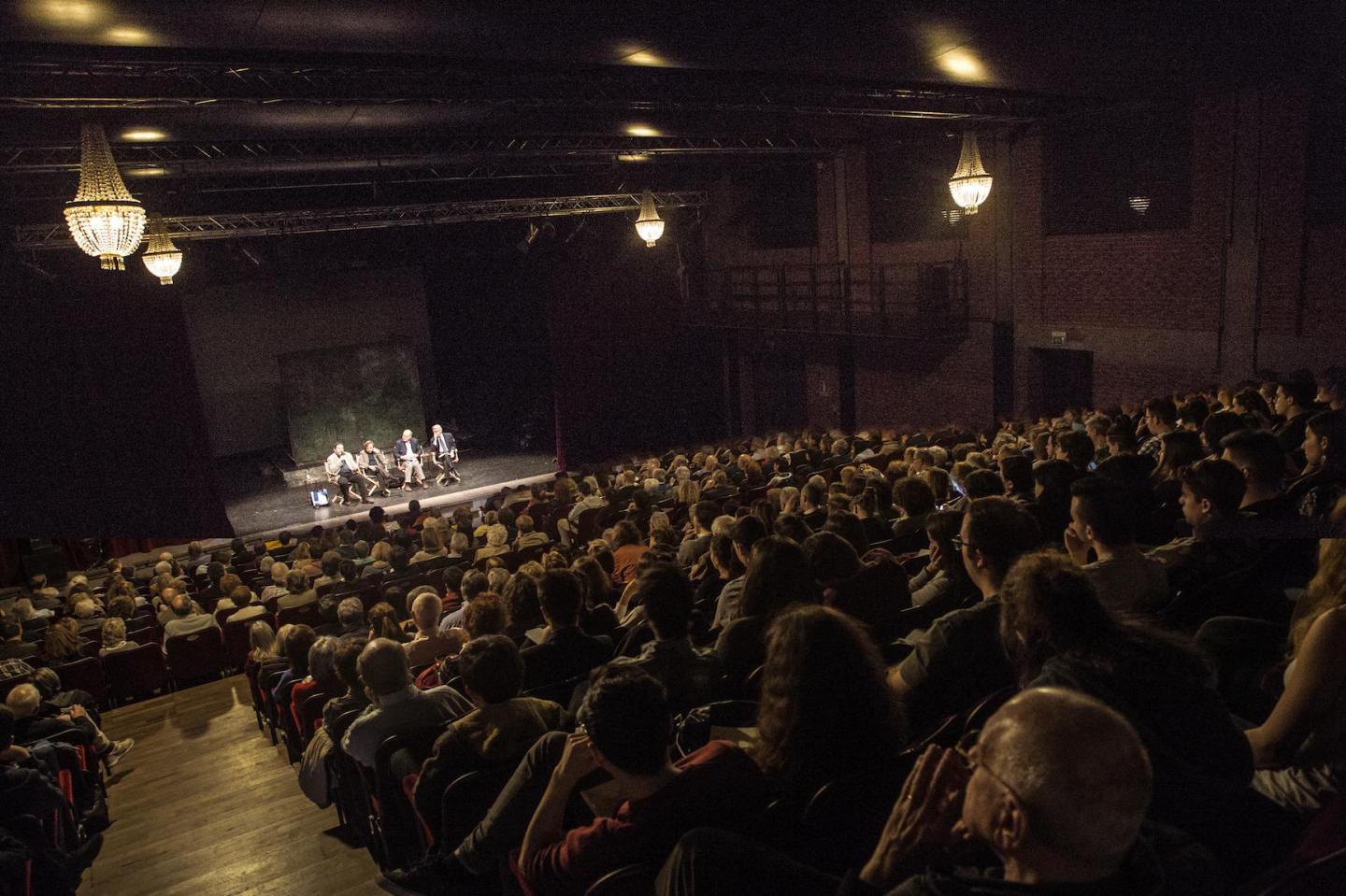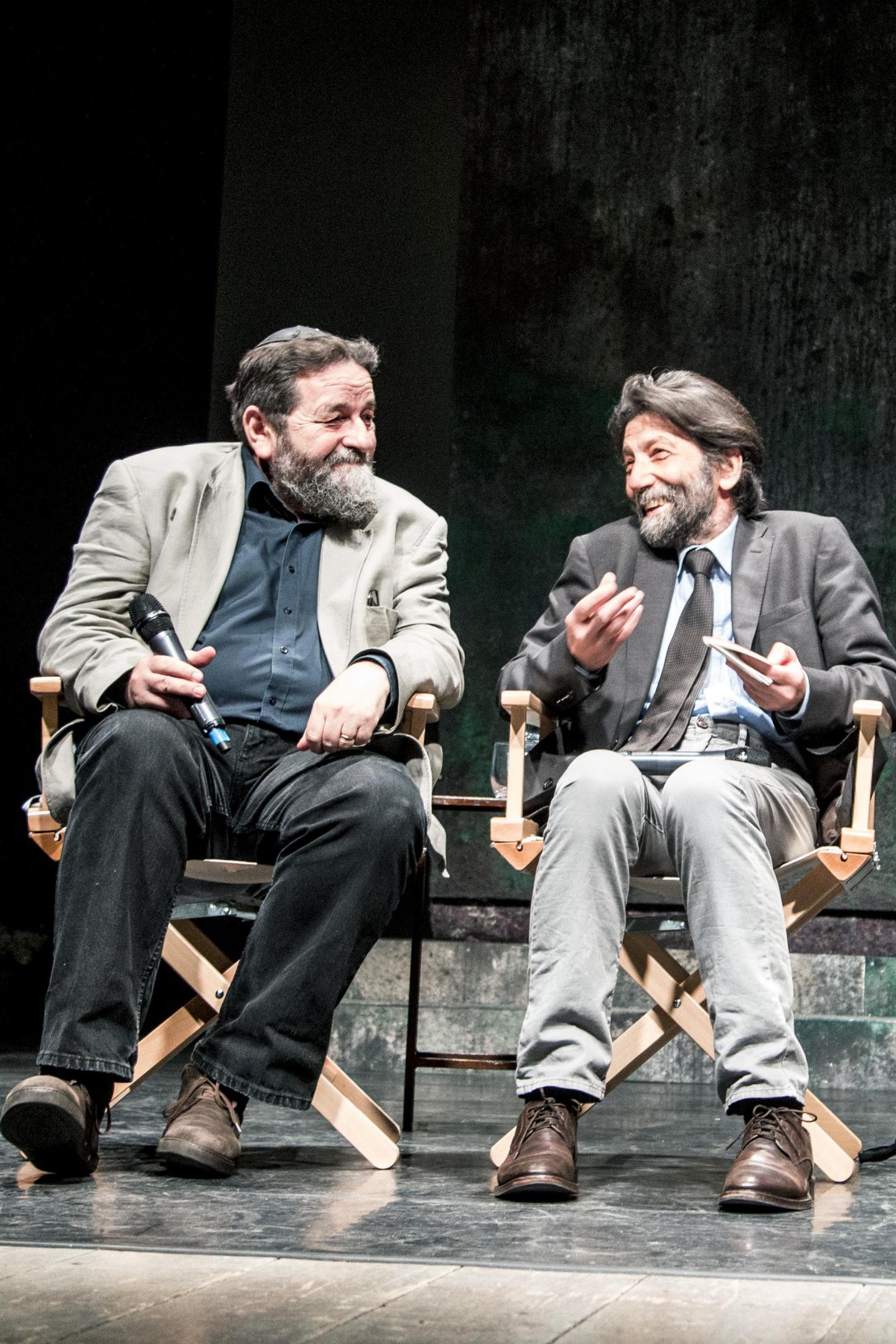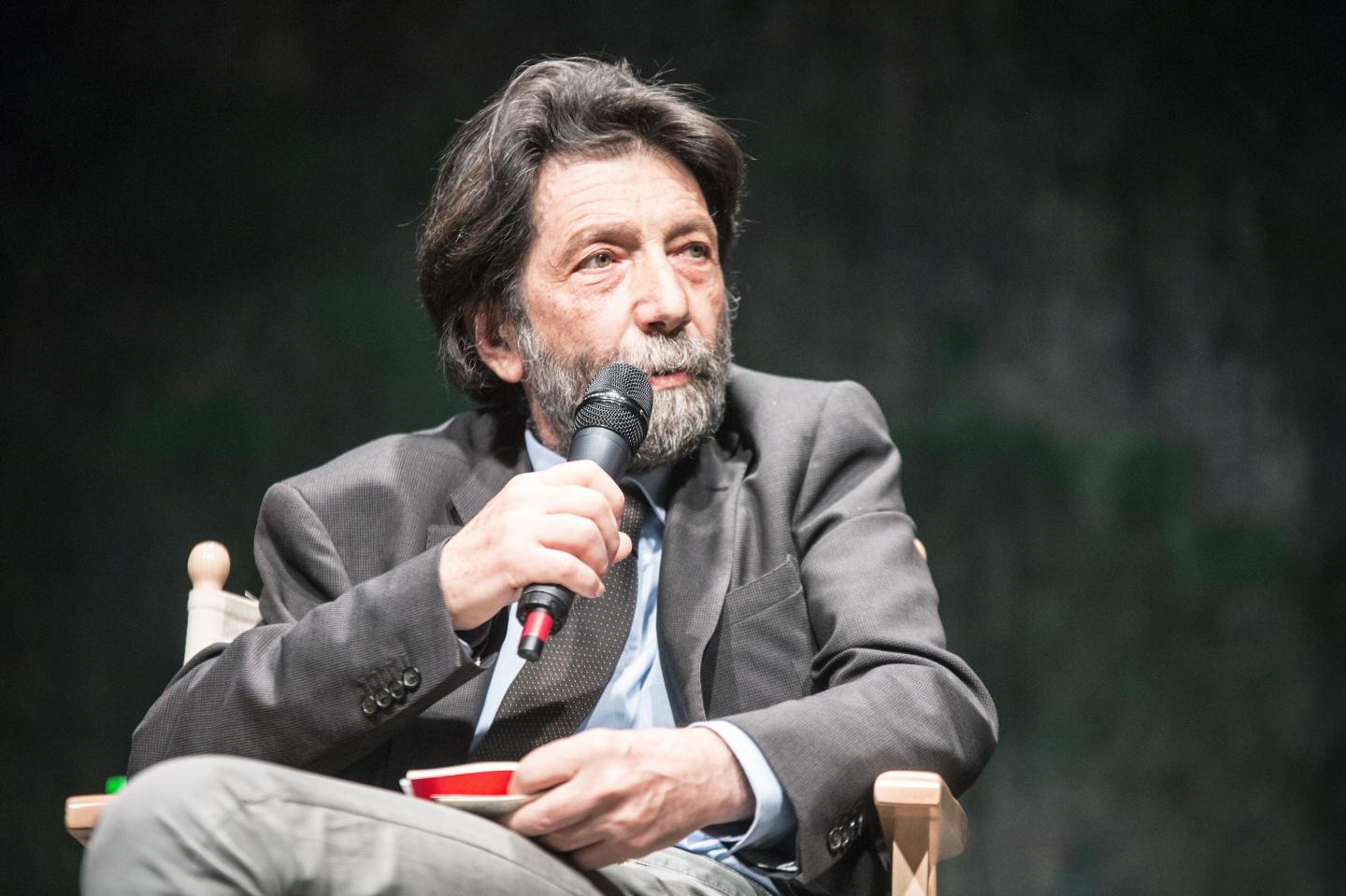
Konstanty Gebert at Teatro Franco Parenti
Following we publish the remarks by Konstanty Gebert, brilliant pen of Polish journalism and Solidarity exponent, at the third meeting of the series “The crisis of Europe and the Righteous of our time", held by Gariwo in cooperation with Teatro Franco Parenti
Even the day after Brexit, English will always remain lingua franca in Europe, although we can start to feel a bit at unease with this language that has now been “lost” to the European concert. The resurfacing of these new waves of intolerance, nationalism racism and other “isms” bear witness to our defeat.
Defeats, though, are not only negative, as they leave us some time to reflect. We have lost a battle, but not the war. The idea that we could overcome the crisis with a soft version of nationalism, useful to entice this more and more dissatisfied electorate, is not feasible: no well-meaning élite can generate any “good nationalism”. Europe – this seems a banality just to think – was born as an answer to the wars that used to tear the Continent apart.
But are there truly no more wars in Europe? Not really. War is back. It would simply suffice to watch what happens everyday in Ukraine, at the borders with Poland, where young soldiers returning each other's fire.
When the European Union received the Peace Nobel prize, it did because it proved to be the empirical evidence of what it meant to put an end to war in a continent that had generated so many.
Those who reject and refuse the European Union, thus, accept and welcome the possibility of a return of war on the continent. This is the first thing we should reaffirm when talking to the new partisans of nationalism. We should ask them if they are really ready to pay the price of new wars in Europe. We are not saying these people want war – nobody wants war – but it is a possibility they should ponder. In the 90es, when I dealt with the war in Bosnia, I lived for one year in the home of some friends in Sarayevo, in the neighbourhood of Koševo. One day I asked them to tell me which was the moment in which they understood war was coming their way. They told me of how, in the comfort of their living room, they watched the news on tv. At the beginning they were shocked to see the fightings in Slovenia, but Slovenia was far, nearly at the opposite of the farthest Northern area of Bosnia. Then they saw the war move to Croatia – but the Croatians, you know, have always been kind of warmongers, or not?
At the end, the artillery shootings reached over to Grbavica and that could only mean people had gone crazy. Grbavica, at any rate, was only a few kilometers away from Koševo, and a few days later a tank climbed the hill near their building, tore down the towerette and shot a series of bullets, which entered their living room. It was no more necessary to watch war on tv, as was had entered their home.
A first argument we should hence present the nationalists with is thus the possible return of war.
Understanding the second reasoning compels us to rethink the long process of development of Europe. When I was a child, my parents used to force me to kiss the cheek of a family friend, and although I whrited and did not want to accept it, my father used to reproach me and ask me to behave like a European. This was my first lesson on Europe: being European meant doing things which were unpleasant, but made sense. This vision of Europe has accompanied all my growing up behind the iron curtain; Europe was maybe out of reach for the people of my age, but through a hard work we could leave it in heritage to our children. A reality without war and oppression. We young people dreamt of that marvellous continent, where everybody was free to live their own lives in peace. I would never expect to see my country in Europe; who amidst you remembers 1989, the year of the fall of the most powerful and piercing of totalitarian systems, without any bloodshed, and saw the subsequent reconstruction of the countries ruled by that power, have witnessed to a true miracle and loses the right to be pessimistic. Objectively, no one would have ever thought the Soviet Union would spontaneously leave to repent for its wrongdoings, that was impossible! We were well aware that to enter such a longed for Europe we would have to bear sacrifices, it would not have to be taken for granted.
Such awareness, to tell the truth, still goes on: in Kyev, in Ukraine, many people have died under the flag of the European Union during the revolts of Maidan square. They fought against the dictatorship of Yanucovich, dying under the European flag. Some days ago, in Belarus, the demonstrators against Lukashenko's dictatorship took to the streets and still under the European flag they were beaten up and arrested by the police. In Romania, under the European flag, big crowds have taken to the streets to demonstrate against the corruption of the political system. I must say that, in telling all this, I am feelingg a bit of unease; those people have invested in this flag their best dreams and hopes, believing the significance of that flag was actual and real. Our answer instead, so feeble and unwilling, seems to tell them that to sum up it is not true, there is no tangible meaning, their sacrifice is useless – the result is not worth the effort. With a quick Brexit or Frexit, we shall get back to old good nationalism. We should have the courage to go to Kyev and tell it to the people who die under this flag, that “it is not worth”. Or, we should say that all those who invest their best dreams and hopes in this flag are not doing soin vain, and this though imposes on us a moral weight: we are discrediting the values for which these people are dying or have died.
Poland itself is backpedalling on these very values we had fought so hard for; the very government, which was democratically elected, chose to resume that old nationalist rhetoric. It is our fault if nationalism is back, it is hte fault of us citizens of Europe, who have not defended these values 'till the end. We citizens have lacked the courage to say No. The return to extreme nationalism is the outcome of a misinterpretation of the history of the Twentieth century. Let us take for instance the narrative oft he Vyzegrad group, countriesy that before the outbreak of the second world war were highly multiethnic. Their continuous rejection of the acceptance of the immigrants is nothing but the fruit of this misinterpretation: the four countries feel they have reached after so many years their inner “ethnic purity”, and accepting refugees would nothing but bring back the situation to the difficult task of coping with multiethnicicity while leading the states.
When we were no members of the European Union, yet, Poland welcomed more than 80,000 Chechnyan refugees. At that time solidarity was overdue: the Chechnyans, too were victims of Russian imperialism. This feeling of solidarity has vanished as soon as Poland entered the European Union.
When we talk about the rejection of Europe by the Eastern European citizens, we blame them for forgetting how much Europe has helped the when it decided to open up eastward instead of focusing on the economic union. We must though comment upon this idea. First of ll, in Eastern Europe people believed the wealth of the West depended on the lack of freedom in the East. The Russians stopped behind the iron curtain because we were there to halt them. The second reason of enlargment to the east is the fact of Germany did not want to have common borders with unstable countries, therefore it was convenient to get these formerly communist countries to enter into a stable compartment. This is the same reason why Poland currently supports the entry of the Ukraine in the European Union. It was thus a pragmatic and realistic choice, rather than a brave one.
Everything started from a mistake by Jean Monnet, one of the founding fathers. When in 1954, the French Assemblée Nationale voted against the utopian plan to create a common French-German army just 10 years after the war, Monnet admitted that the Europeans were not ready, yet to accept the idea of a common Europe, and thus Europe would be achieved technically, without asking the public opinion to take up responsibility. The time and the advantages would create in the very public opinion an attachment and appreciation of the new European reality. This was not fulfilled; we all have accepted the advantages of Europe, such as the freedom of movement and the other consequences, but we have never taken on the moral responsibility for it. Now that the cost seems to overweigh the benefits, instead of examining the balance of it taking into account all variables, we limit ourselves to pointing our finger and saying these problems are Brussels' business. Many citizens today say Mrs. Le Pen or a Five-Star government may be preferable, without pondering the true risks of such a choice. For about 70 year (25 “beyond the wall”) we have lived on a kind of a vacation. No one paid the price and we learned to take everything for granted. The price of a withdrawal of Europe can be seen already in Great Britain: in these days an increase of aggressions against immigrants, Poles, Romanians and so on has been reported. Foreigners who live in Europe are afraid, but they have a Poland, a Romania and so on where they can go back. Great Britain has no place where to get back not to be forced to share its own violent expressions. We must accept that success comes with a price. We must understand which price we are willing to pay. It is not easy to abandon the echo of history, the pleasure of national myths, but I believe it is worth the effort if the result are peace and freedom.
These choices seem to belong to characters of history books; my children and their friends do not believe it is possible to get back to being persecuted for one's own views; this perspective is, precisely, a thing of history books. We can never be sure, however, that those who had came out of history shall never get back into it. In Kyev and in Minsk we shall understand better the meaning of European history than in Rome or London, because there demontrators will goo on struggling for that flag, even if we give up the cause. We must fight, otherwise we will spirituallydie. Those who are fighting today do also thanks to the support of the Western people. Betrayal of values, too comes with a price.
While we talk, somebody tries to wake us up from what they define as an illusionary dream by calling us back to “realism”. However we must be realistic about realism. When I was young and I was an activist in the underground organizations, my problem was not the secret police, but the so called realists, those who did not accept our leaflets, because in their opinion the contingent reality compels every other intellectual dwelling on a transformable reality. Twelve years later, though, the realism of those people proved to be unreal.


